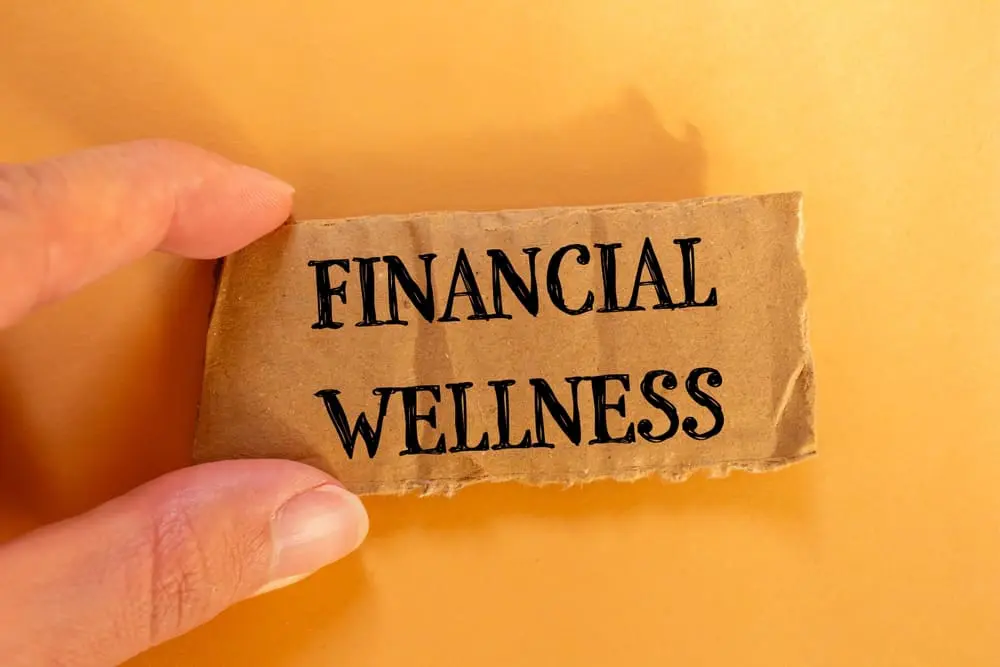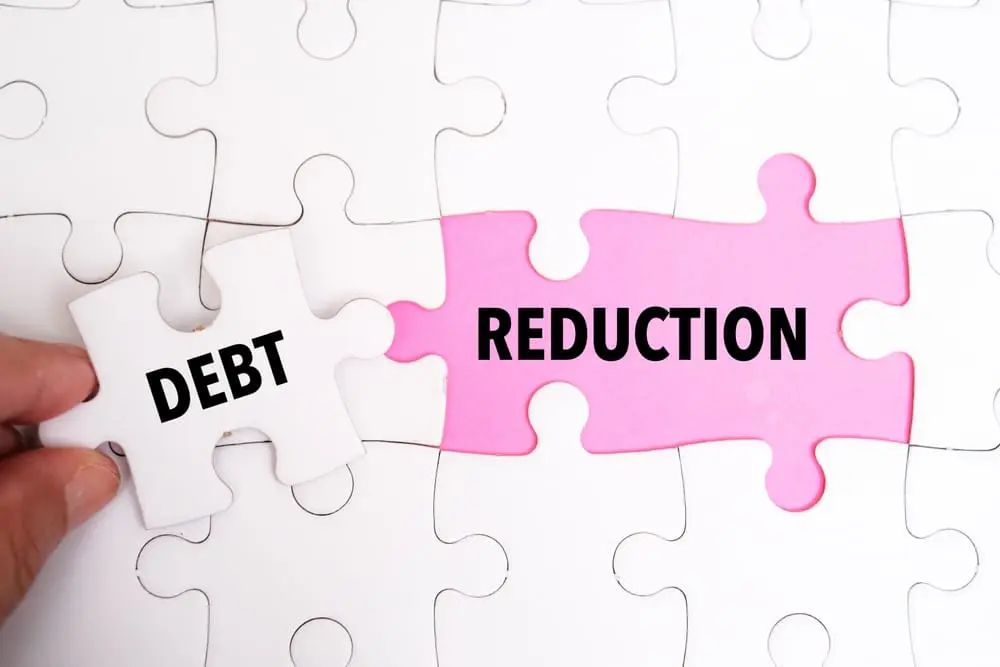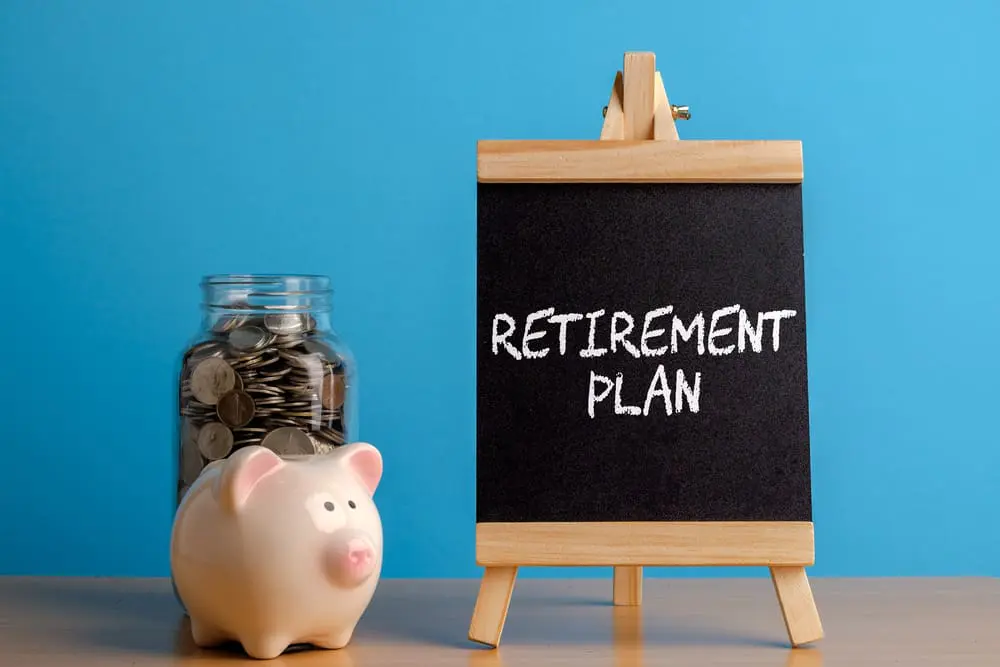Mindful Money – Financial Wellness Practices for a Debt-Free Lifestyle. Find Out More In Our Latest Article!
THIS ARTICLE MAY CONTAIN AFFILIATE LINKS, MEANING I GET A COMMISSION IF YOU DECIDE TO MAKE A PURCHASE THROUGH MY LINKS AT NO COST TO YOU. PLEASE READ MY AFFILIATE DISCLOSURE FOR MORE INFO.
DON’T HAVE TIME TO READ THE FULL ARTICLE. HERE’S WHAT YOU ARE MISSING.
As we navigate life, we often find ourselves in situations where we need to make financial decisions.
Buying a car or a home can significantly impact our financial well-being. Incorporating financial wellness practices into our daily lives can help us make better decisions and achieve a debt-free lifestyle.
Understanding financial wellness is the first step toward achieving financial freedom. It involves creating a budget, reducing debt, building healthy financial habits, and investing in our financial future.
By creating a mindful budget, we can take control of our finances and make informed decisions. Debt reduction strategies can help us pay off debt faster and avoid unnecessary fees and interest charges. Building healthy financial habits can help us create a solid financial foundation for the future.
Investing in our financial future can help us achieve our long-term goals and secure our economic well-being.
Understanding Financial Wellness

Defining Mindful Money
Financial wellness is an essential aspect of overall wellness. It is the ability to manage money effectively and make sound financial decisions. Mindful money is a term used to describe the practice of being aware of our financial decisions and their impact on our overall well-being. It involves being intentional about our spending, saving, and investing habits.
The Psychology of Spending
Our spending habits are often influenced by our emotions and beliefs about money. Some people may overspend to cope with stress or anxiety. Others may have a scarcity mindset and need to buy things to feel secure. Understanding our emotional relationship with money is essential to developing healthy financial habits.
Debt and Mental Health
Debt can significantly impact our mental health, causing stress, anxiety, and even depression. Addressing debt and developing a plan to pay it off can improve our overall well-being. Mindful money practices can help us avoid debt and manage it effectively if we incur it.
By understanding financial wellness, we can incorporate mindful money practices into our debt-free lifestyle. This can lead to greater financial stability and overall well-being.
Creating a Mindful Budget

As part of a debt-free lifestyle, creating a mindful budget is essential. A mindful budget helps you track expenses, set financial goals, and differentiate between needs and wants. Here are some tips for creating a mindful budget:
Tracking Expenses
The first step in creating a mindful budget is to track your expenses. This involves keeping track of all your spending, including small purchases like coffee or snacks. You can use a spreadsheet, a budgeting app, or a simple pen and paper to track your expenses. Tracking your expenses helps you identify areas where you can cut back and save money.
Setting Financial Goals
Once you have a clear picture of your expenses, the next step is to set financial goals. Financial goals include paying off debt, saving for a down payment on a house, or building an emergency fund. Setting clear and achievable financial goals helps you stay motivated and focused on your financial wellness.
Needs vs. Wants Analysis
Finally, a mindful budget involves differentiating between needs and wants. Needs are essential expenses like rent, utilities, and groceries, while wants are non-essential expenses like dining out, entertainment, and travel. By analyzing your expenses and differentiating between needs and wants, you can make informed decisions about where to allocate your money.
Creating a mindful budget is essential to a debt-free lifestyle. By tracking expenses, setting financial goals, and differentiating between needs and wants, you can achieve financial wellness and peace of mind.
Strategies for Debt Reduction

As someone who has successfully paid off my debt, I can attest that it takes discipline, patience, and strategy. Here are a few methods that can help you reduce your debt:
Debt Snowball Method
The Debt Snowball Method involves paying off your debts from smallest to largest. This method can be effective because it provides a sense of accomplishment as you pay off your smaller debts first. To use this method, make minimum payments on all your debts except the smallest ones. Put as much money as possible towards paying off the smallest debt while making minimum payments on the others. Once the smallest debt is paid off, move on to the next smallest debt and repeat the process.
Debt Avalanche Method
The Debt Avalanche Method involves paying off your debts in order of highest to lowest interest rate. This method can be more cost-effective in the long run because it reduces the interest you will pay over time. To use this method, make minimum payments on all your debts except the one with the highest interest rate. Put as much money as possible towards paying off the debt with the highest interest rate while still making minimum payments on the others. Once that debt is paid off, move on to the debt with the next highest interest rate and repeat the process.
Debt Meltdown Method
The Debt Avalanche Method involves three principles: paying the minimum balance, paying half of the minimum balance, and making an interest payment each month. Suppose I have a credit card debt of $10,000, an interest rate of 18%, and a minimum monthly payment of $200. If I follow the Debt Meltdown Method by paying half the minimum balance and allocating an extra $50 per month towards the interest payment, I could save over $3,000 in interest and become debt-free approximately 18 months earlier than making only the minimum payments. By following the Debt Meltdown Method, I can achieve financial liberation and become debt-free much faster.
Consolidation and Refinancing Options
Consolidating your debts involves combining multiple debts into one loan with a lower interest rate. This can make it easier to manage your debt and reduce your overall interest payments. Refinancing involves replacing one or more of your existing loans with a new loan with a lower interest rate. This can also help reduce your overall interest payments. However, it’s essential to do your research and ensure that the new loan terms are favorable before consolidating or refinancing.
By using these strategies and staying committed to paying off your debt, you can achieve financial wellness and live a debt-free lifestyle.
Building Healthy Financial Habits

As someone who has successfully paid off debt and achieved financial wellness, I know firsthand the importance of building healthy financial habits. This section will share some techniques I have used to create a solid foundation for my debt-free lifestyle.
Automating Finances
One of the most effective ways to develop healthy financial habits is to automate your finances. By setting up automatic bill payments and transfers, you can ensure that your bills are paid on time and that you save money each month. This not only makes it easier to manage your finances, but it also helps you avoid late fees and other charges.
Mindful Spending Techniques
Another key to building healthy financial habits is to practice mindful spending. This means being aware of your spending habits and making conscious decisions about where your money goes. One way to do this is to create a budget and track expenses. This allows you to see where your money is going and identify areas where you can cut back.
Another technique is to practice delayed gratification. Instead of making impulse purchases, take some time to think about whether you need the item in question. This can help you avoid overspending and make more thoughtful purchasing decisions.
Regular Financial Check-ins
It’s essential to regularly check in on your finances to ensure that you are staying on track. This means reviewing your budget, tracking your expenses, and monitoring your savings and investment accounts. By doing this regularly, you can identify any issues early on and adjust as needed.
Healthy financial habits are vital to achieving financial wellness and a debt-free lifestyle. By automating your finances, practicing mindful spending, and regularly checking in on your finances, you can create a solid foundation for your financial future.
Investing in Your Financial Future

As someone striving for a debt-free lifestyle, investing in your financial future is crucial to achieving financial wellness. Here are some key areas to consider when planning for your financial future:
Retirement Planning
One of the most important investments you can make is in your retirement. It’s essential to start planning for retirement early to ensure a comfortable lifestyle in your golden years. Consider setting up a 401(k) or IRA and contribute regularly to take advantage of compound interest.
Education Savings Plans
Investing in education is an investment in your future. If you have children, consider setting up a 529 plan to save for their education expenses. These plans offer tax benefits and can be used for qualified education expenses at eligible institutions.
Real Estate and Diversification
Real estate can be a great investment option for diversifying their portfolio. Consider investing in rental properties or real estate investment trusts (REITs) for passive income. It’s essential to diversify your investments to minimize risk and maximize returns.
Investing in your financial future is an essential step towards achieving financial wellness. Consider retirement planning, education savings plans, and real estate investments to diversify your portfolio and secure a comfortable future.
Overcoming Financial Stress

Financial stress is a common experience for many people, no matter how hard we try to avoid it. Various factors, such as unexpected expenses, job loss, and debt, can cause it. However, there are ways to overcome financial stress and take control of your finances.
Emergency Funds
An emergency fund is one of the best ways to prepare for unexpected expenses. Ideally, it should cover three to six months of your living expenses. By providing a safety net for unforeseen circumstances, an emergency fund can help reduce financial stress.
Insurance and Protection
Another way to reduce financial stress is to ensure adequate insurance and protection. This includes health insurance, life insurance, disability insurance, and home and auto insurance. These protections can help mitigate the financial impact of unexpected events.
Seeking Professional Advice
Sometimes, seeking professional advice can be the best way to overcome financial stress. Financial advisors can help you create a budget, develop a debt repayment plan, and provide investment guidance. Additionally, credit counselors can help you develop a plan to pay off debt and improve your credit score.
Incorporating these financial wellness practices into your debt-free lifestyle can help you overcome financial stress and achieve financial stability. Taking small steps toward financial wellness can significantly impact your overall well-being.
Mindful Money in Daily Life

As I continue to incorporate financial wellness practices into my debt-free lifestyle, being mindful of my money in daily life has been vital. Here are a few ways I have been able to do this:
Conscious Consumerism
One way I practice mindful money in daily life is through conscious consumerism. This means being intentional about the products and services I purchase and supporting companies that align with my values. I often research companies and their practices before purchasing and prioritize buying from local and small businesses when possible.
Sustainable Living and Finances
Another aspect of mindful money management in daily life is sustainable living and finances. I try to reduce my carbon footprint and save money by making small changes, such as using reusable bags and containers, buying in bulk, and reducing my energy consumption. These practices benefit the environment and my wallet in the long run.
Community and Financial Wellness
Community and financial wellness go hand in hand. I have found that being part of a supportive community has helped me stay accountable and motivated in my financial journey. I also prioritize giving back to my community through volunteering and supporting local organizations, and by doing so, I contribute to the financial wellness of not only myself but also those around me.
Incorporating mindful money practices into daily life has been a game changer for me in achieving financial wellness and a debt-free lifestyle.
Continuing Education and Resources

As I continue to prioritize my financial wellness, I find it helpful to seek out ongoing education and resources. Here are a few options that I have found particularly useful:
Books and Podcasts
Reading books and listening to podcasts about personal finance can be a great way to continue learning and staying motivated. Some of my favorite books include “The Total Money Makeover” by Dave Ramsey and “Your Money or Your Life” by Vicki Robin and Joe Dominguez. I recommend “The Dave Ramsey Show” and “Afford Anything” with Paula Pant for podcasts.
Online Courses and Workshops
Online courses and workshops provide a more structured way to learn about personal finance topics. Many financial experts offer website courses covering budgeting, investing, and debt reduction. Some popular options include Dave Ramsey’s Financial Peace University and The Motley Fool’s Investing 101.
Financial Wellness Communities
Joining a financial wellness community can provide support and accountability as I work towards my financial goals. These communities can take many forms, from online forums to local meetups. Some popular options include the Reddit community r/personalfinance and the local chapters of the Financial Independence Retire Early (FIRE) movement.
Continuing education and resources have been key to maintaining my financial wellness. I feel more confident and motivated to progress towards my debt-free lifestyle by staying informed and connected to others on the same journey.
Frequently Asked Questions
What are the core principles of financial mindfulness?
Financial mindfulness is all about being aware of your financial situation and making intentional decisions to improve it. The core principles include setting financial goals, creating a budget, tracking expenses, avoiding unnecessary debt, and saving for emergencies and the future.
How can one adopt a debt-free lifestyle while maintaining financial wellness?
Adopting a debt-free lifestyle requires discipline and a willingness to make sacrifices. Start by creating a budget and tracking your expenses, then prioritize paying off your debts. Consider consolidating high-interest debts and negotiating with creditors. It’s also essential to avoid new debt and save for emergencies.
What daily habits contribute to a financially mindful life?
Daily habits such as tracking your expenses, setting financial goals, and reviewing your budget regularly can help you stay on track and progress toward financial wellness. Other habits include avoiding impulse purchases, using cash instead of credit cards, and seeking financial education and resources.
In what ways can financial wellness practices impact debt management?
Financial wellness can help you manage your debt more effectively by providing a framework for making intentional financial decisions. By setting financial goals, creating a budget, and tracking your expenses, you can prioritize paying off your debts and avoid taking on unnecessary debt in the future.
What strategies can balance spending and saving for optimal financial health?
Balancing spending and saving is essential for achieving optimal financial health. One strategy is to create a budget and allocate a portion of your income to savings. Another is to prioritize spending and avoid unnecessary expenses. It’s also important to review your budget regularly and adjust it as needed.
How does emotional intelligence relate to making sound financial decisions?
Emotional intelligence is crucial for making sound financial decisions. You can make more intentional choices by being aware of your emotions and how they impact your financial decisions. Emotional intelligence can also help you manage stress and anxiety related to economic issues, improving your overall financial wellness.
Disclaimer: Millennial Credit Advisers is not a licensed credit service provider or financial advisor. We don’t offer credit repair, debt management, or legal services. Educate yourself on saving, reducing debt, and managing credit for economic improvement. Understand credit reports, scores, and financial products. Consult a financial advisor for personalized advice. Track your progress for a better credit journey.
Written content: Please view our full AI Use Disclosure.
We improve our products and advertising by using Microsoft Clarity to see how you use our website. By using our site, you agree that we and Microsoft can collect and use this data. Our privacy policy has more details.
















